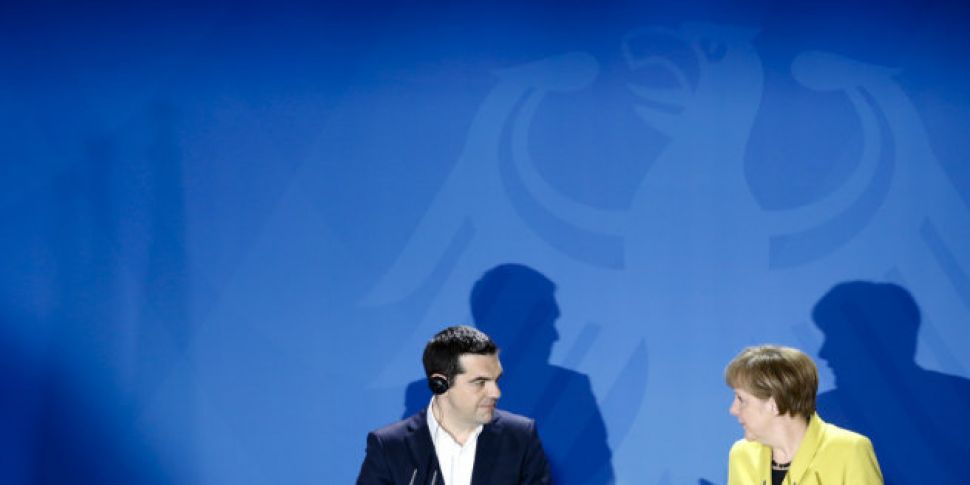Since coming to power Greek PM Alexis Tsipras and finance minister Yanis Varoufakis have both dug up Germany's Nazi past during visits to Berlin.
Most recently on Monday Mr Tsipras renewed calls for the payment of World War II reparations during his joint press conference with German Chancellor, Angela Merkel.
He said that it is "primarily a moral issue and not a material one," and that it would help the two nations to exorcise the "shadows of the past."
Since this argument started the line from Ms Merkel's spokesperson has been that the issue of World War II reparations has been "closed, legally and politically."

This week's issue of Der Spiegel deals with the current controversy
What is the compensation claim?
Greece's initial reparation claims relate to war crimes committed after Axis forces occupied Greece in the spring of 1941. Some 20,000 civilians were killed and there were two major civilian massacres in Kalavryta and Distomo.
The second part of this claim relates to financial costs suffered by Greece as a result of the destruction of infrastructure during the conflict and subsequent occupation.
The third issue is a loan of 476m reichmarks that the occupying countries forced the Greek central bank to release to cover the cost of the war effort and the occupation of the country.
What happened after the war?
The Paris Peace Treaties of 1946 made rulings on reparations. Greece was paid $105m by Italy, and $45m by Bulgaria. Germany was dealt with separately at the Potsdam Conference.
In 1960 Greece was paid 115m marks as compensation for crimes committed during the occupation. There has been an on-going argument since then over whether this was a full reparation - or an initial downpayment.
The main sticking point is that the Greeks claim that the issue of the loan that it was forced to give to Axis forces was never dealt with.

A recent depiction of German Finance Minister, Wolfgang Schäuble in a leftist Greek newspaper
Cleaning the slate
As part of the reunification of Germany in 1990 the country agreed the Two Plus Four Agreement with the Allied forces who defeated Nazi Germany.
While Germany argues that this put the issue to rest - it is complicated by the fact that this deal was with the former-Allies (US, Britain, France and Russia) - and did not include Greece.
Will these claims get Greece anywhere?
The point of bringing up the war seems to be to highlight the debt relief that was afforded to Germany in the post-war period.
The economic outlook of Yanis Varoufakis is also rooted in a particular reading of the period after WWII. He argues that the US created both the EU and the modern German state to forward its own economic goals.
Bringing up the past could be a tactic that intends to put Greece's current economic difficulties in the context of a broader historical economic narrative.
From the outside the digging up of this period of history seems like a populist play - reparation rhetoric has been used extensively by Syriza during its campaigning over the last few years.
It will be interesting to see if Greece continues to push this issue as it tries to hammer out a deal - or if a new deal, or broader thawing in relations between the two states will lead to a step-down from Athens.









